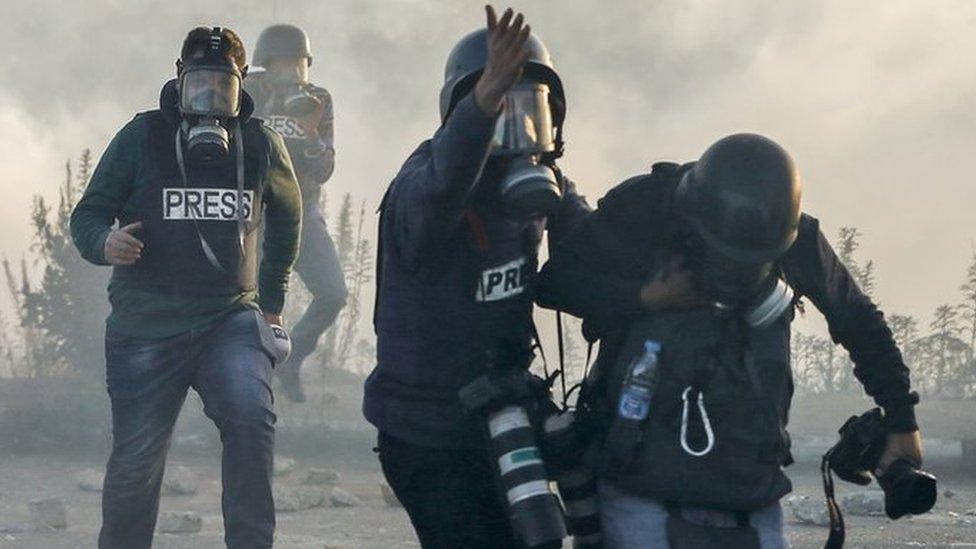Why the attack on our cameraman was no surprise
- Published
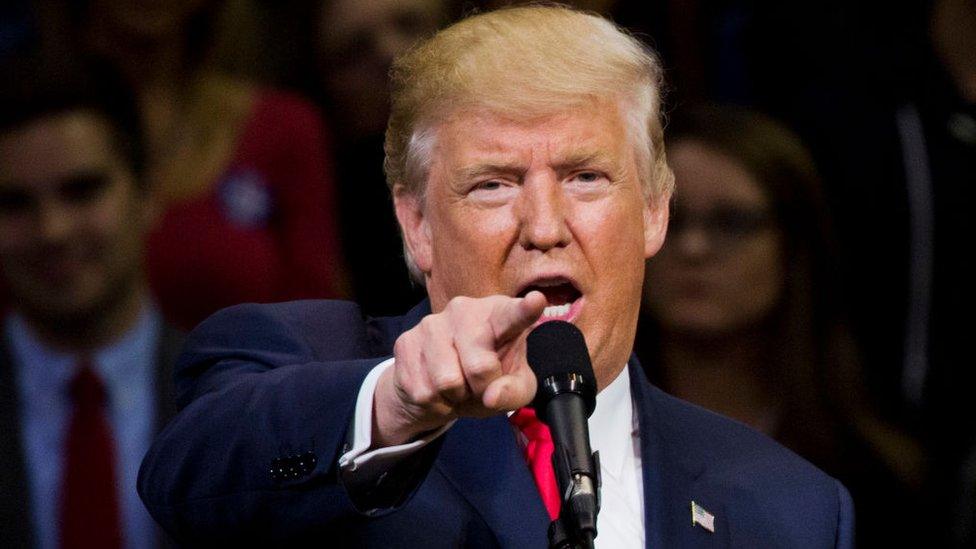
Mr Trump frequently points out where the media are located in the audience
I would really love to be able to say when I heard about the attack on our cameraman Ron Skeans that I was surprised. Or shocked even. I wasn't.
Once I found out that he was OK, and that the rest of the team were OK, I thought this was a pretty unsurprising event. What is shocking is that my reaction should be like that - because surely it can never be right that a person going about doing their job, in a country which cherishes the First Amendment and the rights of a free press, is pushed to the ground. But it is an incident that's been coming for a long time.
Before we get to that, let me say a word about Ron Skeans. Ron is the only one of our camera-people to have a "hard pass" that gives you direct access to the White House estate. I have a hard pass too. That means more or less whenever I am broadcasting live outside the White House, I am working with Ron.
He is the kindest, politest, most decent, patriotic man you could wish to meet. Frankly, there are a few cameramen that I've worked with over the years that are argumentative, provocative and generally belligerent. None of those adjectives could be applied to Ron.
A Trump supporter shoves a BBC cameraman at the El Paso rally
He and I did a report together on Rolling Thunder, the day in Washington when thousands of bikers converge on the city to commemorate those missing in action in Vietnam or who'd been taken as POWs.
I rode my motorbike, he rode pillion on another to film the event. We were both slightly overwhelmed by the patriotism and emotion of the day. He is a proud son of Ohio - where like in most American families there were those of his relatives who supported Trump in 2016, and those who didn't.
The idea that someone would attack Ron is frankly preposterous. He's the wrong guy. But of course it wasn't Ron that was being attacked.
To the drunken lout in the red Make America Great Again hat at the Trump rally, who bravely attacked him from behind while he was looking through the 12lbs (5kg) of camera on his tripod and couldn't see him, that didn't matter.

More from Jon:
The BBC's Jon Sopel reports: "The organisers - many of them veterans from the Vietnam era - invited us to join the front of the parade"

Ron wasn't Ron. Ron was the media. And the media are fair game, aren't they?
I covered endless Trump rallies in the run-up to the election and since - and there is a pattern. The attacks on the media are hugely popular with his supporters. They are every bit as much a part of his "set" as Honky Tonk Woman and Satisfaction are part of a Rolling Stones concert. You just can't imagine it not happening.
If you've never been to a Trump rally let me describe what it's like.
At some rallies at the end of the election campaign there were police officers posted on the access points to each press riser (the platforms where our cameras are mounted towards the back of the venue); even if there were no police they were confined areas.
There was no security last night, and the attack on Ron was stopped by a Trump-supporting blogger. Law enforcement were slow to get involved.
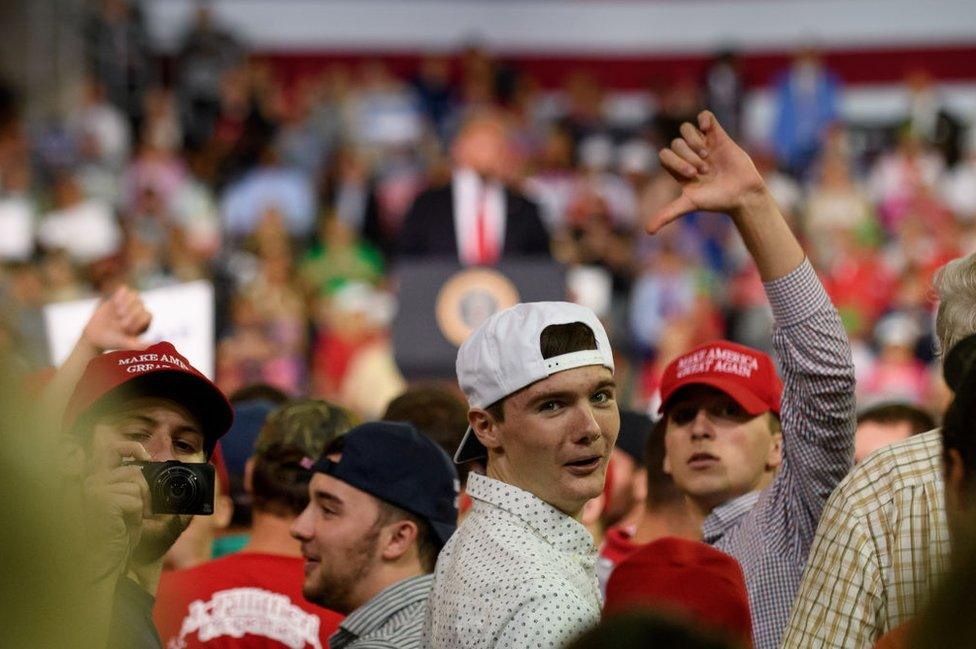
At some point in the president's remarks he will point a finger to where we are filming and you know then the fun is about to begin. "Have you seen a group of more dishonest people? They are fake news; they are the enemies of the people."
And like at a Christmas pantomime the crowd would jeer and boo. Honestly, for the overwhelming majority it is good fun; a part of the ritual. Like being at a football match and saying disobliging things about the referee.
But for a few - and I should add, a growing few, it is more than that. The uncomfortable truth is that with each month that passes the attacks have become more vociferous, the violent atmosphere on these occasions more palpable.
All of my colleagues have stories of occasions when they've been jostled; some have been spat at. Last night Ron heard the words 'CNN sucks' and '[expletive] the media' before he was taken down.
President Trump interrupted his speech and checked that Ron was OK. But there was no condemnation from the White House until late Tuesday afternoon, some 18 hours after the incident. The Trump campaign issued a two-line statement earlier on the incident, but equally did not condemn what happened. What conclusion should we draw from that? What message does it send to people who feel hostile towards the media?
What has surprised me in this whole incident (though not massively) has been the reaction on Twitter of some people.
There are those who have argued, well you're fake news, and Ron got what he deserved. So much for a free press. When I am accused of fake news, I always ask people to point me to something that I have said which is factually incorrect.
I know we get things wrong, and should always be humble enough to put our hands up when we do. But our job is to hold power to account: prime ministers, presidents, kings and queens, despots and autocrats. But just because you don't like the coverage doesn't mean it's fake.
Another reaction has been to suggest we are somehow exaggerating what happened and parsing aspects of this or that. Surely it is just plain and simple wrong to attack someone in the course of doing nothing more provocative than filming the president speaking; an accredited journalist at a Trump event, filming his speech to disseminate to our audience. Why the need to equivocate? It is just wrong. Plain and simple.
And there are those who say it was a Democrat stooge - and can we prove that it was a Trump supporter. We went round this course after the pipe bomb attacks last autumn, when it was suggested the person who'd been sending devices to prominent Democrats was a stooge who was doing this to make the Republicans look bad.
A lot of people who should have known better bought into this - it turned out to be total nonsense. The man charged was a fanatical Trump supporter.

Words have consequences. An interesting meeting took place at the White House two weeks ago when the president invited in the publisher of the New York Times and two of his reporters. The reporters conducted a conventional news interview with President Trump on the issues of the day. But after they had completed that, AG Sulzberger tackled Mr Trump on his fiery anti-press rhetoric. It is worth reading the whole exchange, external.
But the publisher warns the president that his words are divisive and dangerous, and he expresses the opinion that unless it stops there will be an increase in violence against journalists around the world.
Well last night that violence unfolded in El Paso. Ron was unhurt. It wasn't life-threatening, but it was aggressive and violent. But what about the next time? Or the time after that?
None of us goes into journalism expecting a grateful public to be throwing rose petals in our path as we walk along, or carrying us aloft as conquering heroes.
But in a healthy democracy surely we ought to be able to report a president's speech without - literally - having to look over our shoulder.
- Published12 February 2019
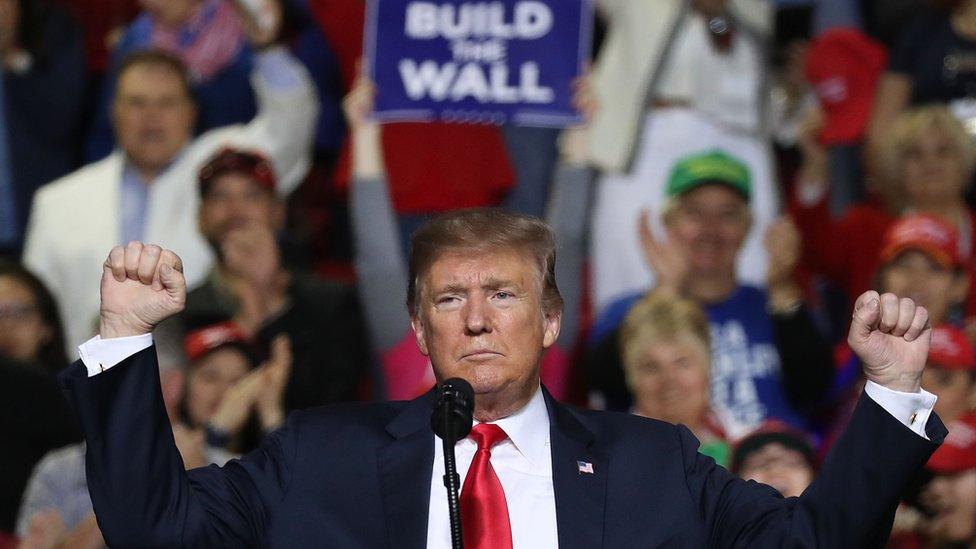
- Published29 August 2016
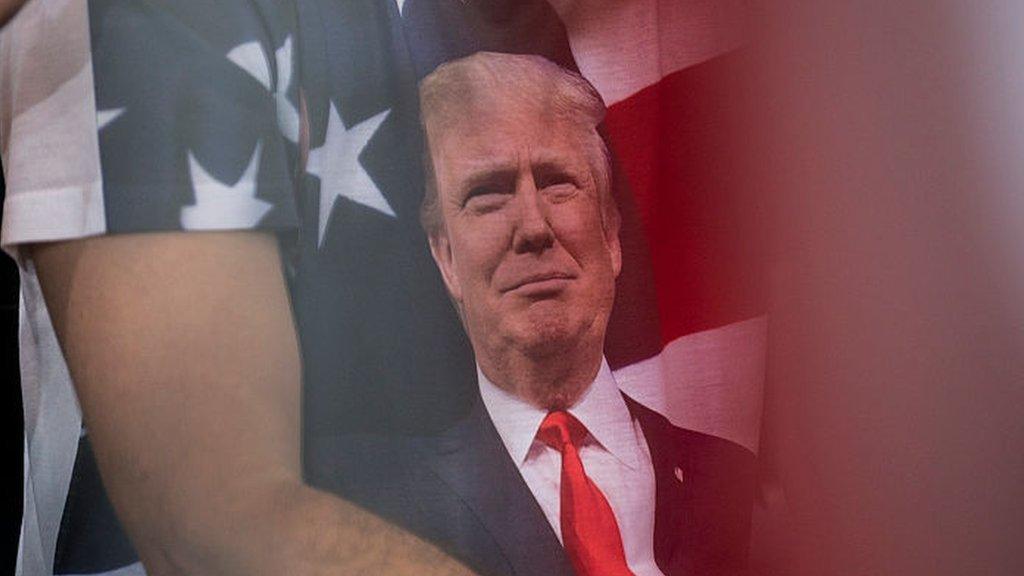
- Published29 January 2019
- Published29 July 2018
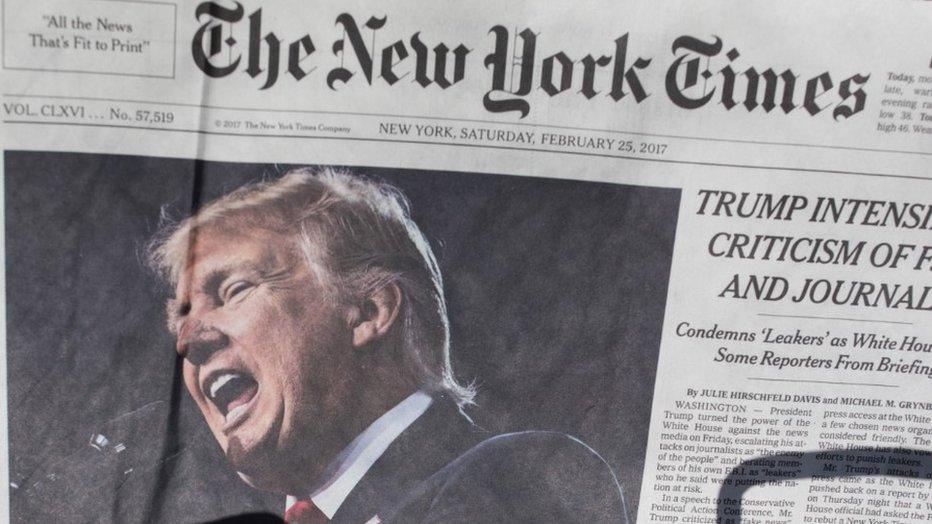
- Published3 May 2018
